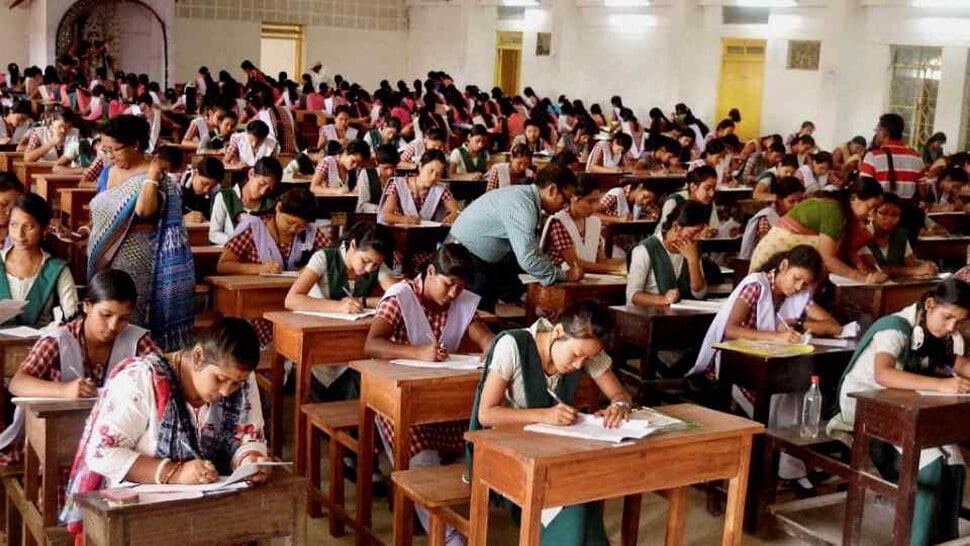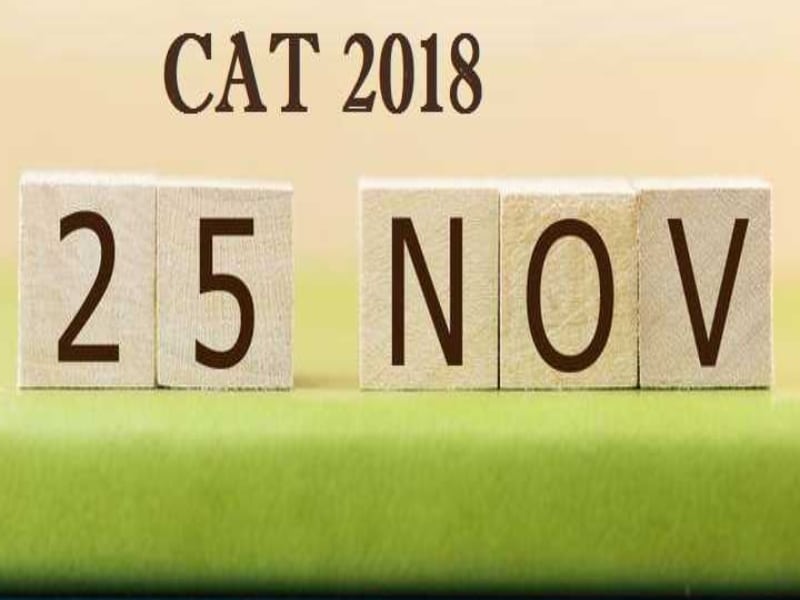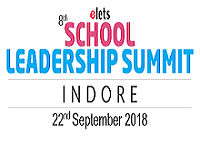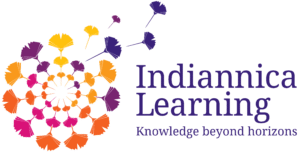Watching one’s child going to preschool for the first time is an emotional experience for many parents. But many of us turn so overwhelmed at times that we tend to ignore many critical aspects related to the preschool – safety, security, and hygiene being some of them, Akash Tomer of Elets News Network (ENN) underlines all this and much more.
A preschool usually lays the foundation stone of child’s educational career. Learning how to ride a bicycle or tricycle or use roller skates or even participating in various day-to-day activities be a fun. But all of them need a constant attention. Such activities at preschools lead to laying of the foundation for kids’ holistic development. But, it is important to take care of kids’ safety during the activities so that their participation becomes a joyful learning experience. As preschools act as the foundation of a child’s education ahead, it is important that the safety, security and hygiene are among the key focus areas and not limited to activities.
3 key methods to evaluate a child’s safety and security at preschool:
Physical Safety: Is the preschool environment, its staff and infrastructure can protect its student from any physical harm within and outside the premises?
Emotional Safety: What kind of treatment are students getting? Do they feel empowered to express themselves?
Cognitive Safety: Is the teaching, pedagogy and curriculum are appropriate as per the kid’s age?
It can be observed that safety and security is a very broad term in respect of preschools. The age when kids enter a preschool is so tender that any mishappening with them may affect their life ahead. Not only parents or teachers but also the staff and administration has major role in ensuring the kids reach school safe, remain safe within the premises and reach their homes safe. It is important to understand the issues first and then possible solutions, to avoid any awkward situation.
Not only clean food or water but neat and clean premises results into healthy learning among students. Water clogging must be avoided within the premise as it causes many diseases.
Challenges of Physical Safety
Injuries: Young children do not understand the effects of playing rough which may accidentally cause injuries to them or their friends.
Fire Safety: It is important for every preschool to pay attention to fire safety guidelines as consequences of overlooking fire proofing and fire drills can be severe.
Transportation: Bus drivers and conductors and drivers may not always be able to take care of children. Roads are dangerous and guidelines for school buses may not be followed always.
Safety Measures
Preschool premises: The premises of the preschools should be well guarded, have walls and proper fencing wherever required. The entry and exit of the preschool must ensure security against those who may harm the children.
Staff: Every staff’s personal and professional background must be checked and police verification must be done. It helps in keeping people with criminal backgrounds away from school premises. Teaching and non-teaching staff must be trained to respond in case of any emergency.
Identification: Along with Identification cards to every student, authority cards must also be issued to every person including parents who will pick and drop students at the preschool.
Classrooms: It is necessary that electrical cords and switch boards are kept out of the students’ reach. Every electrical outlet should be covered with childproof materials. Cleaning supplies and medicines should be locked away.
Toys and furniture: All materials (toys, mats, furniture etc.) should meet regulatory standards. Suitable fall surfaces should be present around any play equipment and furniture to avoid any accident.
Observation: CCTV cameras should cover all classrooms and the complete premises.
Consistency: Daily safety checks should be carried out to ensure that maintenance is up to date. Mock drills must also be carried out on regular basis to make student and staff ready for any emergency.
Emotional safety: Major challenges
 Corporal Punishment: In 2010, The Ministry of Women and Child Development issued a new set of guidelines to ban any kind of punishment, which includes beatings and even making children stand for hours. Preschools also ensure teachers not try to punish students in this manner.
Corporal Punishment: In 2010, The Ministry of Women and Child Development issued a new set of guidelines to ban any kind of punishment, which includes beatings and even making children stand for hours. Preschools also ensure teachers not try to punish students in this manner.
Molestation and Abuse: Kids in preschools are often at risk of assault from the staff responsible for their care, which can cause trauma and injury. Very few such cases come to light as young children hesitate to talk about the issue. This makes it more important to have preventive safeguards in place.
Learning/Emotional Problems: It is important to figure out different psychological issues among young children like problems at home, learning disabilities, social problems, and others. In case of these issues not addressed, they can hamper a child’s development.
Safety Measures
Individual Attention: It is one of the most important measures to ensure the emotional safety of all students. Not only teachers but parents as well has a very important role in it. Friendly communication with kids and monitoring change in their behaviour may help parents to find out the problems and help them in resolving it.
Cognitive safety: Major Challenges
Academic Pressure: Preschool isn’t meant for putting academic pressure on kids rather it is about nurturing them in a positive and amiable environment to handle pressures of future. Any kind of academic pressure from parents or teachers may not let them reach developmental milestones in time.
The premises of the preschools must be well guarded, have walls and proper fencing wherever required. The entry and exit of the preschool must ensure security against those who may wish to harm to the children.
Safety Measures:
Teaching materials: All teaching materials including toys should be age appropriate. They should be made of child safe material.
Syllabus: The syllabus should be structured in a manner that doesn’t stress out children.
Role of the teachers and staff : Teachers are kind of children’s second parents and have responsibilities that span physical, emotional and cognitive safety issues. They must take care of certain points so that the students don’t face a situation that may hamper their growth ahead.
Physical presence: Teachers should maintain attendance records and do regular head counts to ensure that none of the students is absent.
Supervision: Individual attention must be paid to every student all time monitoring their behaviour and activities.
Reporting: Teachers should maintain reports of accidents and incidents.
Illness prevention: Teachers should be trained to identify illnesses and take measures to contain infection.
Medical needs: Teachers should be aware of each child’s allergies and medical issues.
Emergency contact: The staff should have the contact information of the parents or other emergency contacts for the child
Hygiene: An important aspect of kids’ safety
 We have often heard about the personal hygiene habits that every preschooler should maintain. These habits include washing hands, sneezing or coughing etiquettes, short nails and many others. But what if the students are cleaning their hands with contaminated water? What if a teacher or staff is not following the coughing or sneezing etiquettes taught to students? What if the toilets in preschools are not properly maintained?
We have often heard about the personal hygiene habits that every preschooler should maintain. These habits include washing hands, sneezing or coughing etiquettes, short nails and many others. But what if the students are cleaning their hands with contaminated water? What if a teacher or staff is not following the coughing or sneezing etiquettes taught to students? What if the toilets in preschools are not properly maintained?
If all these and other issues are not handled well in the preschools, there is no point how clean our students are. There are many chances of students falling ill if any of the aforementioned problem is there.
Certain points that every preschool must take care in terms of hygiene along with that of students:
Contaminated water: If kids spend four to five hours a day in preschools, any kind of bacteria in the water may infect students with diseases that will hamper their studies. It is necessary for school administration to get the water tanks clean on regular intervals. They must also be checked for any kind of infection time-to-time.
Contaminated food: Some of the preschools offer food to their students. Like water, it is important to ensure cleanliness while cooking or even purchasing the vegetables or food items. First of all, it must be ensured by the school administration that food items bought from the market must be of good quality. In addition to that, every vegetable must be washed and cleaned thoroughly. The serving dishes and utensils must also be thoroughly cleaned. Maintaining good quality standard of food will help the children to remain healthy.
Clean premises: Not only clean food or water but neat and clean premises results into healthy learning among students. Water clogging must be avoided within the premise as it causes many diseases. At the same time, the lavatories used by Kids must be cleaned exhaustively as dirty toilets may cause various types of health related troubles among the tiny tots. It must also be ensured that the kids’ toilets are not used by any of the staff members or teachers.
Hygenic Staff: Teachers and staff member come in direct contact of students. They must wear clean clothes. In case a teacher or staff member is infected with any kind of disease, they must avoid at all cost to be in contact with students.
In all, it is important that the students remain safe and secure within the preschool premises. Along with various other measures, hygiene is also an important issue that must be addressed by the preschools for healthy and holistic learning among the young children.
In brief, though a lot needs to be done to provide a safe, hygienic and secured environment, there is much that just needs parental and schools’ attention to ensure that the kids enjoy their stay at preschool and feel like being in a well secured and interesting environment for long hours.












 Corporal Punishment: In 2010, The Ministry of Women and Child Development issued a new set of guidelines to ban any kind of punishment, which includes beatings and even making children stand for hours. Preschools also ensure teachers not try to punish students in this manner.
Corporal Punishment: In 2010, The Ministry of Women and Child Development issued a new set of guidelines to ban any kind of punishment, which includes beatings and even making children stand for hours. Preschools also ensure teachers not try to punish students in this manner. We have often heard about the personal hygiene habits that every preschooler should maintain. These habits include washing hands, sneezing or coughing etiquettes, short nails and many others. But what if the students are cleaning their hands with contaminated water? What if a teacher or staff is not following the coughing or sneezing etiquettes taught to students? What if the toilets in preschools are not properly maintained?
We have often heard about the personal hygiene habits that every preschooler should maintain. These habits include washing hands, sneezing or coughing etiquettes, short nails and many others. But what if the students are cleaning their hands with contaminated water? What if a teacher or staff is not following the coughing or sneezing etiquettes taught to students? What if the toilets in preschools are not properly maintained?

















